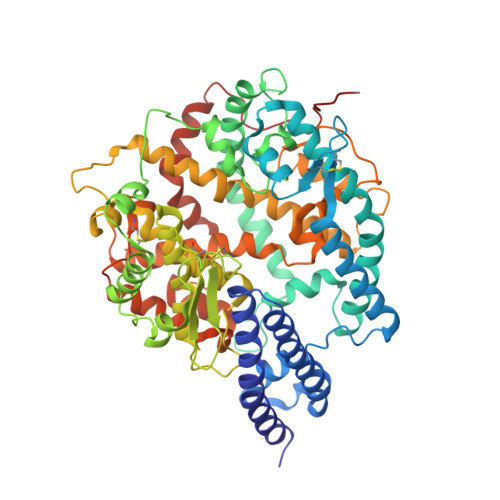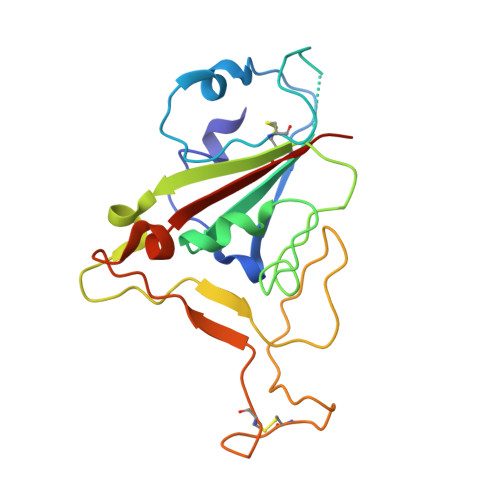Mechanisms of host receptor adaptation by severe acute respiratory syndrome coronavirus.
Wu, K., Peng, G., Wilken, M., Geraghty, R.J., Li, F.(2012) J Biological Chem 287: 8904-8911
- PubMed: 22291007
- DOI: https://doi.org/10.1074/jbc.M111.325803
- Primary Citation of Related Structures:
3SCI, 3SCJ, 3SCK, 3SCL - PubMed Abstract:
The severe acute respiratory syndrome coronavirus (SARS-CoV) from palm civets has twice evolved the capacity to infect humans by gaining binding affinity for human receptor angiotensin-converting enzyme 2 (ACE2). Numerous mutations have been identified in the receptor-binding domain (RBD) of different SARS-CoV strains isolated from humans or civets. Why these mutations were naturally selected or how SARS-CoV evolved to adapt to different host receptors has been poorly understood, presenting evolutionary and epidemic conundrums. In this study, we investigated the impact of these mutations on receptor recognition, an important determinant of SARS-CoV infection and pathogenesis. Using a combination of biochemical, functional, and crystallographic approaches, we elucidated the molecular and structural mechanisms of each of these naturally selected RBD mutations. These mutations either strengthen favorable interactions or reduce unfavorable interactions with two virus-binding hot spots on ACE2, and by doing so, they enhance viral interactions with either human (hACE2) or civet (cACE2) ACE2. Therefore, these mutations were viral adaptations to either hACE2 or cACE2. To corroborate the above analysis, we designed and characterized two optimized RBDs. The human-optimized RBD contains all of the hACE2-adapted residues (Phe-442, Phe-472, Asn-479, Asp-480, and Thr-487) and possesses exceptionally high affinity for hACE2 but relative low affinity for cACE2. The civet-optimized RBD contains all of the cACE2-adapted residues (Tyr-442, Pro-472, Arg-479, Gly-480, and Thr-487) and possesses exceptionally high affinity for cACE2 and also substantial affinity for hACE2. These results not only illustrate the detailed mechanisms of host receptor adaptation by SARS-CoV but also provide a molecular and structural basis for tracking future SARS-CoV evolution in animals.
- Department of Pharmacology,University of Minnesota Medical School, Minneapolis, Minnesota 55455, USA.
Organizational Affiliation:



















